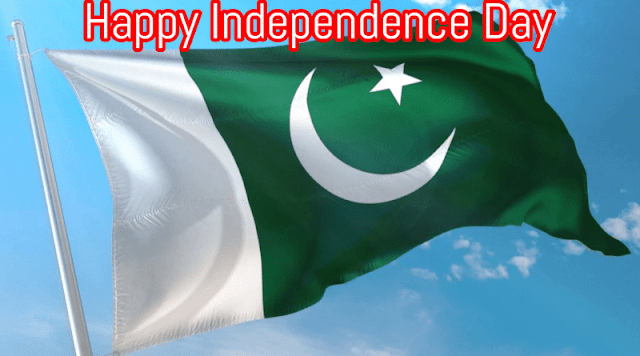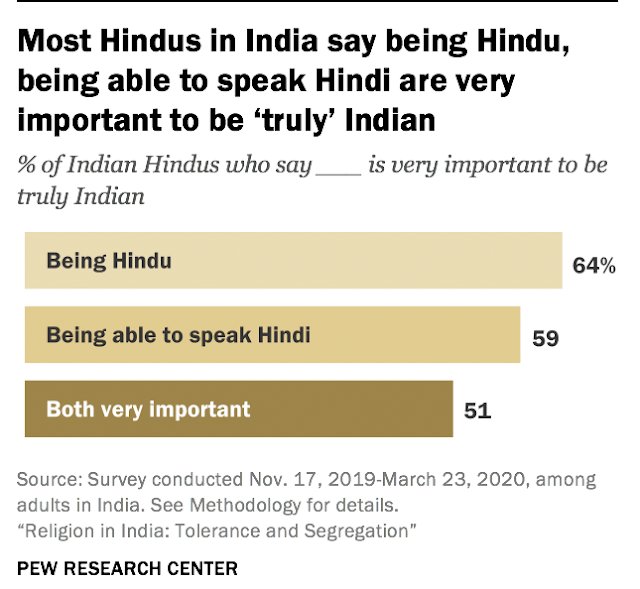PakAlumni Worldwide: The Global Social Network
The Global Social Network
Pakistan Independence Day: Can Religion Be A Basis Of Nationhood?
It is quite fashionable among liberal Indian and Pakistani elite to question religion as a basis of nationhood. Pakistani intellectual Javed Jabbar responded to some of these "liberal" critics at a conference in New Delhi, India. He said as follows: "India was a region, not a country until 1947....Pakistan was NOT carved out of India.... Both India and Pakistan became independent countries in 1947.. Religion can be a basis for nationhood".
 |
| Happy Independence Day Pakistan |
In his detailed remarks, Jabbar made a reference to British political scientist Hugh Seton-Watson who said there is no scientific definition of nationhood.
 |
| Most Hindus Link Hindu Religion and Hindi Language With Indian Nati... |
The majority of Hindus see themselves as very different from Muslims (66%), and most Muslims return the sentiment, saying they are very different from Hindus (64%). Most Muslims across the country (65%), along with an identical share of Hindus (65%), see communal violence in India as a very big national problem. Like Hindus, Muslims prefer to live religiously segregated lives – not just when it comes to marriage and friendships, but also in some elements of public life. In particular, three-quarters of Muslims in India (74%) support having access to the existing system of Islamic courts, which handle family disputes (such as inheritance or divorce cases), in addition to the secular court system.
Most Hindus (59%) also link Indian identity with being able to speak Hindi – one of dozens of languages that are widely spoken in India. And these two dimensions of national identity – being able to speak Hindi and being a Hindu – are closely connected. Among Hindus who say it is very important to be Hindu to be truly Indian, fully 80% also say it is very important to speak Hindi to be truly Indian.
https://www.youtube.com/embed/0VF_07yT580"; title="YouTube video player" width="560"></iframe>" height="315" src="https://img1.blogblog.com/img/video_object.png" width="560" style="cursor: move; color: #000000; font-family: Times; font-size: medium; font-style: normal; font-variant-ligatures: normal; font-variant-caps: normal; font-weight: 400; letter-spacing: normal; orphans: 2; text-align: left; text-indent: 0px; text-transform: none; white-space: normal; widows: 2; word-spacing: 0px; -webkit-text-stroke-width: 0px; text-decoration-thickness: initial; text-decoration-style: initial; text-decoration-color: initial; background-color: #b2b2b2;" />
Haq's Musings
South Asia Investor Review
Are Muslims Better Off in Jinnah's Pakistan?
Quaid-e-Azam MA Jinnah's Vision of Pakistan Inspired By Misaq e Madina
Is This a 1971 moment in Pakistan's History?
Is Two Nation Theory Dead After Bangladesh Independence?
Global Firepower
Jinnah's Pakistan Booms Amidst Doom and Gloom
Quaid-e-Azam M.A. Jinnah's Vision of Pakistan
India Wins Freedom by Maulana Azad
Ayesha Jalal Taking On Pakistan's Hero
The Poor Neighbor by William Dalrymple
Iqbal and Jinnah
-
Comment by Riaz Haq on August 15, 2021 at 7:02pm
-
#Pakistan national anthem translated from Farsi to Urdu. #IndependenceDay
https://twitter.com/haqsmusings/status/1427079755736645635?s=20
The only purely Urdu word in #Pakistan national anthem is “ka” as in “Pak sar zameen ka nizam”.
-
Comment by Riaz Haq on October 2, 2021 at 9:21pm
-
Shahid Zaidi, A Veteran #Pakistani #Photographer in #Lahore , Rushes to Save the Past - The New York Times
http://www.nytimes.com/2021/10/02/world/asia/pakistan-photo-history...
LAHORE, Pakistan — Before Shahid Zaidi was born, before his home was an independent country, his father opened a portrait studio and captured the nation’s emerging history.
His father, Syed Mohammad Ali Zaidi, captured a Hindu couple in 1939. The man wore a conservative double-breasted suit, hair slicked, while the woman sported a sari, with earrings dangling and bangles on her wrists, the exact colors eluding the black-and-white negative.
The next year he captured a Muslim couple, listed as Mr. and Mrs. Mohammad Abbas, the bride in a shimmer-trimmed shalwar kameez and a matha patti, an ornamental headpiece, and the groom resplendent in a qulla, a wedding turban.
Word spread about his studio, and Syed Mohammed Ali Zaidi’s customers began to include the elite of the new nation of Pakistan. He photographed Muhammad Ali Jinnah, the lawyer turned separatist who became the modern country’s founder. He photographed Liaquat Ali Khan, the first prime minister, who was cut down by an assassin’s bullets in 1951.
Shahid Zaidi, 79, wants to preserve that history. He has assembled a small team to create digital versions of the images his father began capturing at his studio in Lahore 91 years ago. He aims to put the complete collection online so that families can find their ancestors and explore Pakistan’s coming-of-age.
“It’s my responsibility,” said Mr. Zaidi. “We have images that belong to somebody. They may want them or never want them. That’s beside the point. As far as I’m concerned, I owe them something.”
It won’t be easy. The studio, called Zaidis Photographers, houses an extensive archive of around half a million negatives. Though he won some financial support from the United States Institute of Peace, which promotes conflict resolution, he is funding the rest himself.
The elder Zaidi opened the studio in 1930, when he rented a piece of prime real estate on The Mall, a British-era thoroughfare in Pakistan’s second-largest city. Despite its sought-after location, the studio struggled to find customers in a tough economy.
The elder Zaidi “had the courage, the commitment, and the wisdom to do this when he had nothing else,” said Mr. Zaidi, who grew up in the studio.
Mr. Zaidi left for London as a young man to study film. He returned for a stint to Pakistan with his wife, Farida, in a Volkswagen bus, almost bartering his Leica camera in Tehran in exchange for gas. The pair later moved to Reno, Nev., where Mr. Zaidi worked as a director of photography for a studio portraiture company.
When his cousin, who had been running the studio, called Mr. Zaidi in the 1980s to ask him to take over the business, he felt he had to return. “There was something in me telling me, ‘You’ve got to go back,’” he said. “‘That’s your father’s work.’”
Comment
Twitter Feed
Live Traffic Feed
Sponsored Links
South Asia Investor Review
Investor Information Blog
Haq's Musings
Riaz Haq's Current Affairs Blog
Please Bookmark This Page!
Blog Posts
Trump Administration Seeks Pakistan's Help For Promoting “Durable Peace Between Israel and Iran”
US Secretary of State Marco Rubio called Pakistan Prime Minister Shehbaz Sharif to discuss promoting “a durable peace between Israel and Iran,” the State Department said in a statement, according to Reuters. Both leaders "agreed to continue working together to strengthen Pakistan-US relations, particularly to increase trade", said a statement released by the Pakistan government.…
ContinuePosted by Riaz Haq on June 27, 2025 at 8:30pm — 4 Comments
Clean Energy Revolution: Soaring Solar Energy Battery Storage in Pakistan
Pakistan imported an estimated 1.25 gigawatt-hours (GWh) of lithium-ion battery packs in 2024 and another 400 megawatt-hours (MWh) in the first two months of 2025, according to a research report by the Institute of Energy Economics and Financial Analysis (IEEFA). The report projects these imports to reach 8.75 gigawatt-hours (GWh) by 2030. Using …
ContinuePosted by Riaz Haq on June 14, 2025 at 10:30am — 3 Comments
© 2025 Created by Riaz Haq.
Powered by
![]()
You need to be a member of PakAlumni Worldwide: The Global Social Network to add comments!
Join PakAlumni Worldwide: The Global Social Network